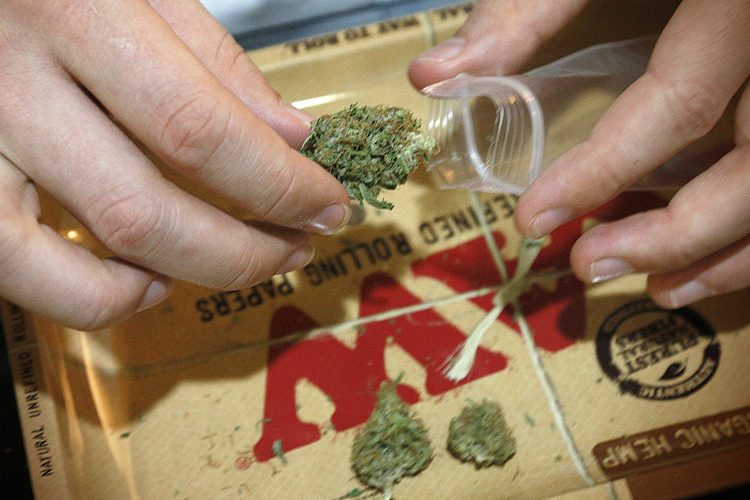Now that you can buy, sell and smoke pot under Colorado law, there are a few questions that remain to be answered, about basic concepts of liberty and fairness.
First, what shall become of the Americans who are serving prison time for what is now a legal thing to do, legal in the same jurisdiction in which they were prosecuted for it? It’s hard to swallow the idea that one American must spend a life, or a year, or even a day in prison for activity that another person is out freely enjoying. This is not, to be clear, about different jurisdictions having different criminal laws. It’s about one jurisdiction having two standards. And such is now the case not only in Colorado (where the new law provides no amnesty for past offenders), but also across the nation as a whole. The federal government has boldly stated a plan for selective prosecution: Coloradans won’t be targeted for prosecution, but neighboring Nebraskans will be.
Second, how can we tolerate the amorphous residuum of authority now held by federal prosecutors in Colorado?
Contrary to what many Coloradans might think, the U.S. Justice Department has not granted immunity for marijuana sales in Colorado. Far from it. The attorney general has simply issued a guidance memo to its regional prosecutors, advising them not to interfere with marijuana commerce as long it adheres to state law and meets certain other conditions. That memo includes a bold disclaimer saying that nothing in it “provides a legal defense to a violation of federal law.” And on the subject of marijuana, the U.S. attorney general has already shown that he will not act against federal prosecutors who defy his orders.
In Montana, we had a burgeoning medical marijuana industry that was stimulated by a now-infamous 2009 memo, which looked very much like the 2013 memo on which Coloradans are depending. The 2009 memo told prosecutors to leave medical growers alone as long as they were following state law. Montana’s U.S. attorney ignored the memo and systematically rounded up the medical growers, many of whom were making good faith efforts to comply with state law. Some of them were even giving tours of their facilities to local police and state legislators so as to ensure compliance. They were threatened with life sentences and thus forced to plead, serve prison time and forfeit major investments that they’d made in their businesses. As for the U.S. attorney’s motivation in all of it, he said that in his opinion, marijuana has no medical value.
Not only did Holder not take action against this prosecutor for defying the 2009 directive, he issued a second memo giving him cover, “clarifying” that pot remained a dangerous and federally illegal substance, and reiterating that nothing the DOJ ever says about pot in any memo to any prosecutor “provides a legal defense to a violation of federal law.” Defendants were barred in federal court from asserting what anyone can see is a totally reasonable defense: that they had relied on on a written statement by the highest law enforcement official in the land.
All of which is another way of saying that the new legal regime in Colorado is so murky as to be incompatible with basic notions of justice and rights and fair notice. People whose lives have been destroyed by selling an ounce of pot should not have to watch from their jail cells as Coloradans now take part in identical activity. And federal prosecutors should not ever have blanket discretion to act like ayatollahs, free to decide if, when and how they will arrest and prosecute citizens who are under the impression that what they are doing is legal. It is the equivalent of Congress delegating legislative authority to prosecutors.
Finally, the President and Colorado Gov. John Hickenlooper might both consider commuting certain sentences for people guilty of buying or selling small amounts of marijuana. And it might not be morally acceptable for them to wait, as executives often do, until their last days in office.

